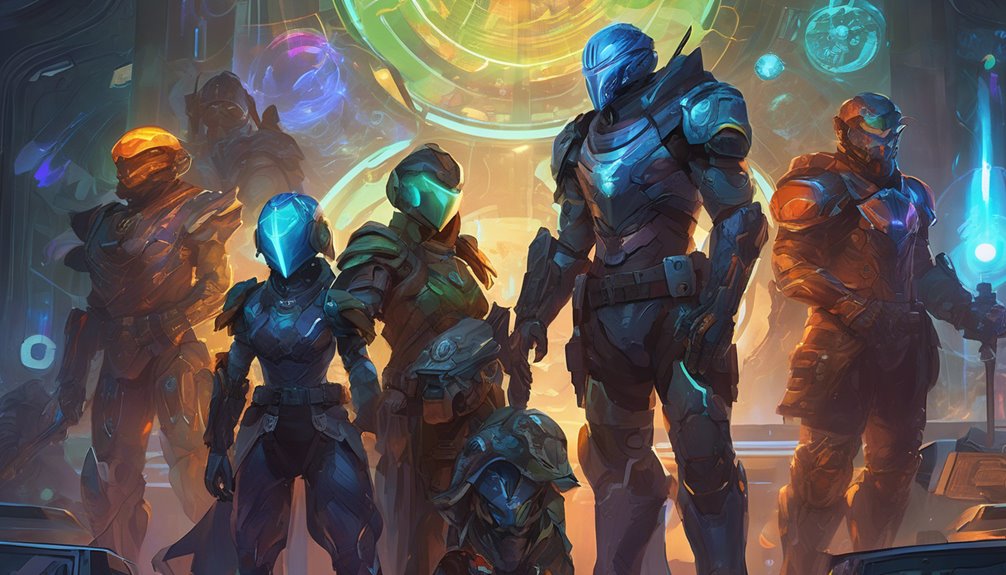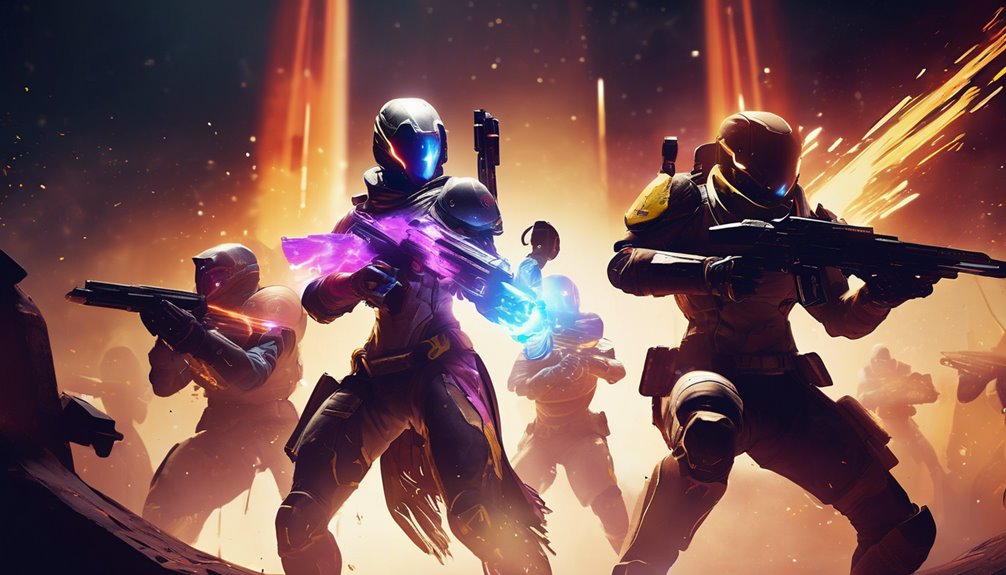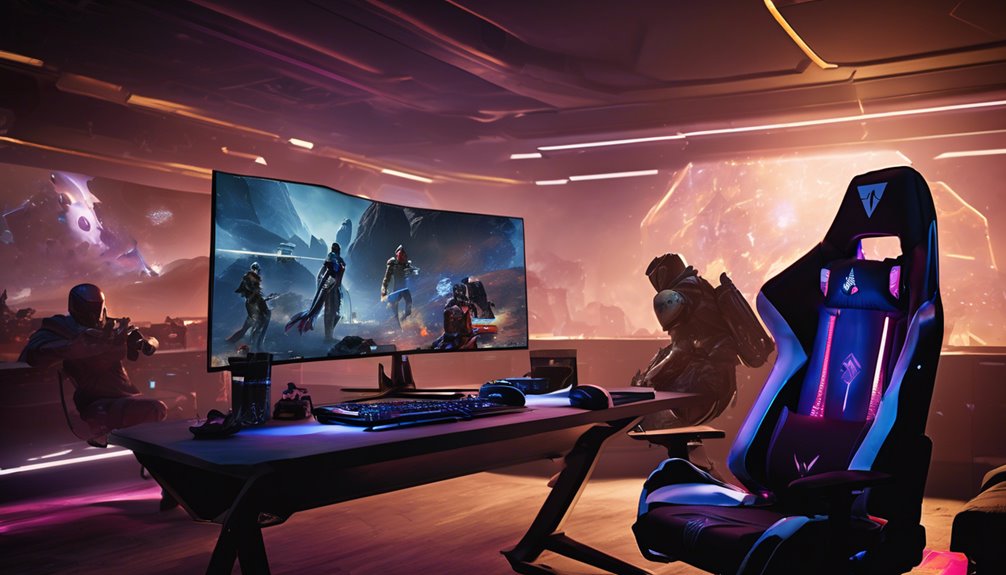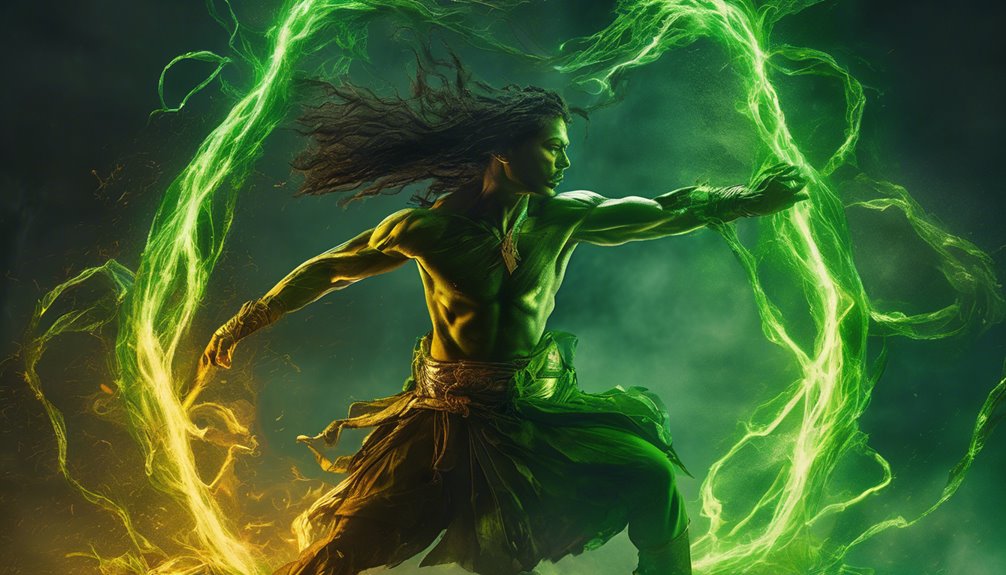Understanding the Basics of Raids in Destiny 2
Raids in Destiny 2 are the ultimate test of teamwork and skill, often requiring six Guardians to band together for a shared goal.
Understanding the basics of raid structures is crucial for success. Each raid features a unique layout, with distinct sections that challenge your team's coordination and strategy. You’ll encounter various enemy mechanics, which can include powerful bosses, environmental hazards, and intricate puzzles that require quick thinking.
As you progress, it’s vital to recognize how different enemies behave and how they interact with your team. Some may require specific tactics to defeat, while others might impose debuffs or create chaos on the battlefield. Learning these mechanics not only enhances your gameplay but also strengthens your team's synergy. By familiarizing yourself with raid structures and enemy mechanics, you’ll be better prepared to tackle the challenges ahead and enjoy the rewarding experience that comes with conquering each raid.
Choosing the Right Roles for Your Team
When it comes to building your raid team, choosing the right roles is crucial for success. You’ll want to specialize each player’s strengths while ensuring your team composition is well-balanced. This way, everyone can contribute effectively to overcome the challenges ahead.
Role Specialization Importance
Understanding the importance of role specialization is crucial for any successful raid team in Destiny 2. When each member knows their specific role, it creates role clarity, allowing for efficient task delegation. This means that everyone can focus on their unique responsibilities, whether you're a damage dealer, support, or a tank. By clearly defining roles, you minimize confusion during intense encounters, making it easier to adapt to unexpected challenges. Each role has its strengths and weaknesses, so leveraging them effectively can make or break your raid. Remember, teamwork thrives on understanding and trust; when everyone's clear on their tasks, you'll achieve better coordination and ultimately conquer those challenging raids. So, choose your roles wisely and watch your team flourish!
Balancing Team Composition
A well-balanced team composition is essential for tackling any raid in Destiny 2, and it often comes down to the right mix of roles. Understanding team dynamics and character synergies can make all the difference in your success.
Role Description
| Damage | High DPS to eliminate threats |
| Support | Buffs and heals teammates |
| Control | Crowd control and debuffs |
When building your team, consider having two damage dealers, one support, and one control role. This balance ensures that you can deal damage efficiently while maintaining survivability and control over the battlefield. By integrating each role's strengths, you’ll enhance your team's overall effectiveness and increase your chances of clearing the raid.
Essential Loadouts and Gear
In the world of Destiny 2, gear and loadouts can make or break your raid experience. To maximize your success, focus on loadout synergy among your team. Each Guardian should complement one another, whether you’re using a Warlock’s Well of Radiance for healing or a Titan’s Ward of Dawn for a damage boost. Choosing weapons that fit your team’s strategy is crucial—think about pairing a sniper for long-range support with a shotgun for close encounters.
Gear optimization is equally important. Prioritize armor with high resilience and recovery stats to withstand raid mechanics. Mod your gear for added benefits, such as increased weapon handling or faster ability cooldowns. Don't forget to equip powerful weapons that deal elemental damage matching the raid’s enemies. By aligning your loadouts and optimizing your gear, you’ll create a balanced and effective team ready to conquer any challenge that comes your way.
Communication Strategies for Success
When it comes to raiding in Destiny 2, clear callouts can make or break your team's success. You’ll want to encourage open dialogue among your teammates so everyone feels comfortable sharing information and strategies. Remember, effective communication not only enhances coordination but also boosts morale during those intense encounters.
Clear Callouts Essential
Effective communication is crucial in any Destiny 2 raid, and having clear callouts can make or break your team's success. Callout clarity is key; when you spot a danger or a target, make sure your teammates know exactly what you mean. Instead of vague terms, use specific phrases like "left plate" or "middle adds" to direct your firepower effectively. This helps with strategic positioning, allowing your team to move as a cohesive unit. Always keep your callouts brief and to the point—time is of the essence during intense moments. Practicing these clear callouts can enhance your team’s performance and coordination, ensuring everyone knows their role and what needs to be done to conquer the raid.
Encourage Open Dialogue
Building on the importance of clear callouts, fostering an environment of open dialogue among your team can significantly boost your raid experience. Encourage team feedback by regularly checking in with your teammates. Ask how they feel about the current strategy and be open to new ideas. This not only enhances collaboration but also helps in strategy brainstorming, allowing everyone to contribute their strengths. When players feel heard, they’re more likely to share valuable insights that could lead to success. Additionally, set aside time after each raid to discuss what worked and what didn’t. This reflection can strengthen your team's communication skills and build trust, making your next raid even more enjoyable and effective.
Mastering Raid Mechanics
While mastering raid mechanics can seem daunting, understanding the core principles will significantly enhance your team's performance. To succeed, you'll need to focus on effective raid encounter strategies and develop a solid grasp of boss mechanics. Here are some key points to keep in mind:
- Learn the Boss's Attack Patterns: Familiarize yourself with each boss's mechanics to anticipate their moves.
- Assign Roles Clearly: Define who handles specific tasks, like damage dealing or adds control.
- Communicate Constantly: Use voice chat or in-game messaging to keep everyone informed during the encounter.
- Practice Makes Perfect: Run through encounters multiple times to build muscle memory and improve coordination.
Importance of Teamwork and Coordination
Mastering raid mechanics is only part of the equation; without strong teamwork and coordination, even the best strategies can fall flat. Team dynamics play a crucial role in your raid's success. When you and your teammates trust each other, you'll communicate more effectively, adapt on the fly, and execute strategies seamlessly. Trust building isn’t just about knowing each other’s gaming skills; it’s about developing relationships that allow for honest feedback and encouragement.
As you tackle challenges, remember that coordination is key. Assign roles based on each player's strengths, and ensure everyone understands their responsibilities. Regular check-ins can help maintain focus and address any concerns. By fostering a collaborative environment, you'll create a team that not only overcomes obstacles but learns and grows together. So, invest time in teamwork and coordination, and watch your raid experience transform into something truly epic.
Practicing Before the Big Day
Before diving into the challenges of a raid, it’s essential to practice together as a team to ensure everyone’s on the same page. This isn’t just about learning mechanics; it’s also a great opportunity for team bonding. By engaging in pre-raid warm-ups, you'll boost your coordination and communication, setting a solid foundation for the big day.
Here are some effective practices to consider:
- Role Assignments: Familiarize each player with their specific roles.
- Practice Runs: Attempt lower-level activities or previous raids to hone skills.
- Communication Drills: Work on callouts and strategies to enhance your teamwork.
- Gear Checks: Ensure everyone’s loadout is optimal and ready for the raid.
How to Handle Setbacks and Failures
When setbacks and failures strike during a raid, it’s crucial to maintain a positive mindset and learn from the experience. Embrace these moments as opportunities for growth. Use setback strategies like analyzing what went wrong, discussing it with your team, and brainstorming solutions together. This collaborative approach fosters a sense of unity, reminding everyone that you’re in it together.
Building failure resilience is essential. Instead of dwelling on mistakes, focus on adapting and improving. Encourage open communication within your team; it’ll help everyone express concerns and share ideas without fear of judgment. Celebrate small wins even after a setback, as they remind you of your progress.
Celebrating Your Victories and Learning From Experiences
Although it’s easy to focus on the obstacles, taking the time to celebrate your victories can significantly boost team morale and motivation. Victory celebrations, no matter how small, reinforce a sense of achievement and camaraderie. They remind everyone that effort pays off and motivate your team for future challenges.
Here are some ways to incorporate victory celebrations and learning rituals into your raid practice:
- Share Highlights: Discuss memorable moments and strategies that worked well.
- Reward Contributions: Recognize individual efforts with shout-outs or in-game rewards.
- Reflect Together: After each raid, hold a brief meeting to analyze what went well and what can be improved.
- Plan Future Goals: Set new targets based on your successes, keeping the momentum going.
Frequently Asked Questions
How Long Do Destiny 2 Raids Typically Take to Complete?
Destiny 2 raids typically take 3 to 5 hours for completion, depending on your team’s familiarity with the mechanics. Understanding mechanics is crucial; it can make or break your experience and efficiency during the raid.
What Are the Minimum Power Levels Required for Raids?
You’ll need at least 1600 power to tackle most raids effectively. Focusing on power leveling is crucial, as understanding raid mechanics becomes easier when your Guardian's stats are high enough to withstand the challenges ahead.
Can You Attempt Raids Solo in Destiny 2?
You can't attempt raids solo in Destiny 2, but you can use solo raid strategies and seek out raid matchmaking tips to find a team. Teamwork is essential for overcoming those challenging encounters.
Are There Specific Raid Challenges for Each Week?
Yes, there are specific raid challenges each week, which rotate with the weekly resets. These challenges often require mastering certain raid mechanics, pushing you to adapt your strategies and collaborate effectively with your fireteam.
How Do I Find Other Players for Raid Teams?
You can find teammates by joining gaming forums and social media groups dedicated to raids. Engaging with these communities helps you connect with players who share your goals, making it easier to form a raid team.




